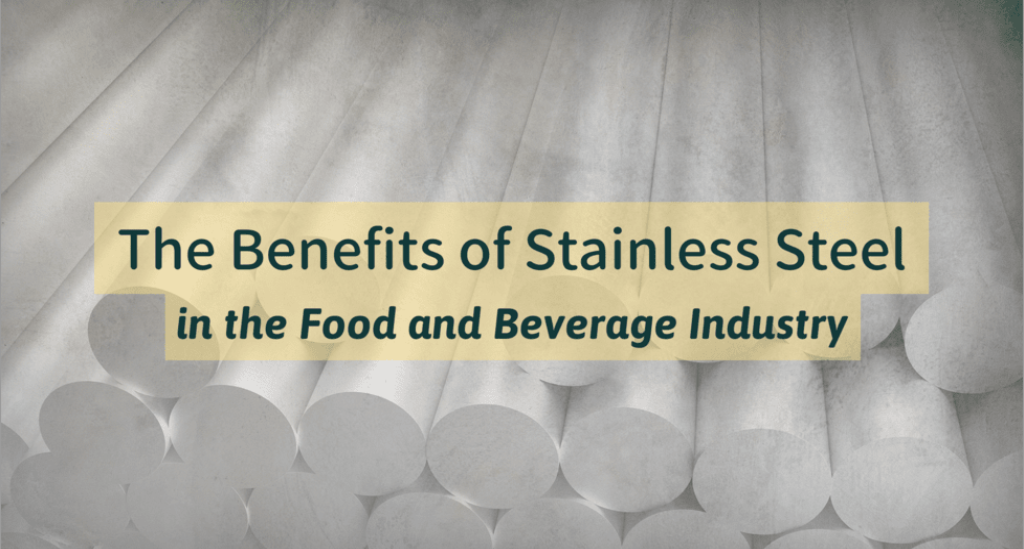
The Benefits of Stainless Steel in the Food and Beverage Industry
Stainless steel has become the material of choice in the food and beverage industry for good reasons. Its remarkable combination of properties makes it an indispensable asset for equipment, storage, and infrastructure within this critical sector. In this blog, we will explore the various benefits of stainless steel in the food and beverage industry.
Hygiene and Safety:
One of the most critical considerations in the food and beverage industry is hygiene. Stainless steel is non-porous, easy to clean, and highly resistant to corrosion and staining. This ensures that there are no places for bacteria to hide, making it an ideal material for food processing equipment, countertops, and storage tanks. Stainless steel's inert nature also ensures that it doesn't react with food or beverages, preventing contamination.
Durability:
Stainless steel is known for its exceptional durability. It can withstand harsh cleaning chemicals, temperature variations, and mechanical stress, all of which are common in food and beverage processing. This longevity reduces maintenance and replacement costs, making it a cost-effective choice in the long run.
Corrosion Resistance:
In a moist and often acidic environment, like the food and beverage industry, corrosion is a significant concern. Stainless steel's resistance to corrosion is a key advantage. It doesn't rust, stain, or degrade, ensuring the integrity of both the equipment and the products being processed or stored.
Temperature Resistance:
Stainless steel can withstand extreme temperature fluctuations without warping, cracking, or losing its structural integrity. This is crucial in the food and beverage industry, where equipment needs to be exposed to high temperatures during cooking and cleaning processes.
Aesthetic Appeal:
Stainless steel is known for its sleek and modern appearance, making it a popular choice for kitchen and restaurant design. It exudes a sense of cleanliness and professionalism, which is essential in food preparation and service areas. Additionally, it is available in various finishes to match the specific aesthetic preferences of the establishment.
Sustainability:
Stainless steel is a sustainable choice as it is 100% recyclable, and it is often made with a significant percentage of recycled content. This reduces the environmental footprint of the industry. Its long lifespan also minimizes the need for replacement, further reducing waste..
FDA Approval:
Stainless steel is widely accepted and approved by regulatory bodies like the U.S. Food and Drug Administration (FDA) for use in the food and beverage industry. This approval is a testament to its safety and suitability for food contact surfaces.
Ease of Fabrication:
Stainless steel is highly malleable and can be easily fabricated into a wide range of shapes and sizes. This flexibility allows for customized equipment and structures to meet specific industry needs.
Cost-Efficiency:
While the initial cost of stainless steel equipment and infrastructure may be higher than other materials, its durability and low maintenance requirements provide significant cost savings over time. The reduced need for replacement and repairs ensures a high return on investment.
In conclusion, stainless steel's outstanding attributes, including hygiene, durability, corrosion resistance, and sustainability, make it an invaluable material in the food and beverage industry. It ensures product safety, maintains a clean and professional appearance, and ultimately contributes to the efficiency and success of businesses within this sector. With its long-term cost benefits, stainless steel is not just a choice; it's a necessity for those who prioritize quality and safety in food and beverage production.
Contact CSC
 All Major Credit Cards Now Being Accepted. Charges may incur.
All Major Credit Cards Now Being Accepted. Charges may incur.